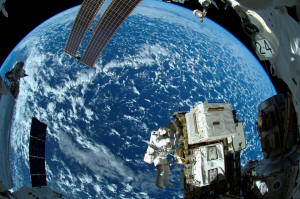|
Nelson said that the Biden administration had committed to
working with international partners, including Russia, to
continue research being conducted in the orbiting laboratory
through the rest of this decade. Russia and the United States
have had close cooperation aboard the International Space
Station for more than two decades.
U.S. officials said in November that an anti-satellite missile
test that Russia conducted generated a debris field in low-Earth
orbit that endangered the station and will pose a hazard to
space activities for years.
The station would operate through 2030 if approved by
international partners and funded by the U.S. Congress.
Currently, Congress has approved funding through 2024.
The Interfax news agency said in August that Russia and the
United States will continue working together on ISS after 2024,
citing a senior official at Russia's space agency Roscosmos.
"As more and more nations are active in space, it's more
important than ever that the United States continues to lead the
world in growing international alliances and modeling rules and
norms for the peaceful and responsible use of space", Nelson
said in a statement on Friday released by the National
Aeronautics and Space Administration (NASA).
Tensions between Russia and the United States have not been
confined to just issues related to space. Biden and Russian
President Vladimir Putin on Thursday exchanged warnings over
Ukraine but conveyed some optimism that diplomatic talks in
January could ease spiraling tensions.
(Reporting by Kanishka Singh in Bengaluru; Editing by Lisa
Shumaker)
[© 2022 Thomson Reuters. All rights
reserved. This material may not be published,
broadcast, rewritten or redistributed.
Thompson Reuters is solely responsible for this content.]

|
|



.png)
